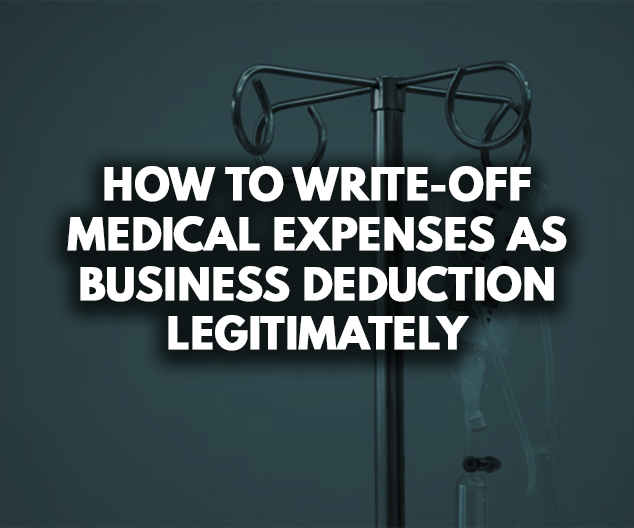A handful of my self-employed clients recently reached out to ask us about Health Spending Accounts (HSAs).

HSAs are essentially self-insured health plans that allow employers to provide health care benefits to employees’ tax free.
Employers get to deduct the expenses and employees get to enjoy the benefits tax free.
If used properly, real estate agents and real estate investors can write off their medical expenses against their business income, which can provide significant tax benefits.
What is a Health Spending Account?
Health Spending Accounts (HSAs) are essentially self-insured health plans arranged by employers for employees in Canada.
Back in the days when I was working as an employee for Deloitte, we used to have HSAs as part of the benefit package.
Each employee is allocated a fixed amount of spending. Employees get to choose what they use the money for, can be massage, dentist, optometrist, etc.
This allows the employers to deduct the money they spend on funding the HSAs. Employees get to receive the benefits tax free.
What type of Health Spending Accounts is deductible in the eyes of CRA?
Not all HSAs are born equal. Some are tax deductible and some aren’t. To qualify for a tax deduction as per CRA, all of the following conditions must be met:
- All of the expenses covered under the plan are:
- Medical and hostpial expenses (medical expenses)
- Expenses incurred in connection with a medical expenses and within a reasonable time period following medical expenses (connected expenses), such as travel expenses to get medical care
- A combination of medical expenses and connected expenses
- All or substantially all of the premiums paid (generally 90% or more) relate to e-medical expenses that are eligible for the medical expense tax credit
- The plan must be a plan in the nature of insurance that’s undertaken by one person to indemnify another person for an agreed amount from a loss or liability in respect of an event, the happening of which is uncertain.
In addition to it, only certain HSAs are acceptable:
- Incorporated business, including shareholder employees and all other corporate employees, are eligible to participate. Corporations with as few as one employee can be eligible.
- For businesses that aren’t incorporated, the owner and their employees can also be eligible if the owner has at least one arm’s-length employee.
Sole proprietorship with no arm’s length employees CANNOTdeduct money used to fund HSA as private health services plan against his/her business income.
How does Health Spending Accounts work?
When employees incur medical expenses, they first pay for it using their own fund.
They then mail the receipt and support to the Health Spending Accounts administrator.
Employers send the same amount of money to the Administrator.
Administrators issue a cheque to reimburse the employees.
Money sent by the employers to the HSAs Administrators are tax deductible against revenue, provided the plan and employers both qualify the criteria mentioned above.
Employees receive the medical benefits tax-free.
How does it benefit real estate agents and real estate investors?
When my family and I incur medical expenses, we pay for them ourselves out of pocket. We have our own businesses, and we did not have medical plans coverage before.
We keep the receipts. At the end of the year, we would tally them all up, enter them into our personal tax returns.
If your medical expenses qualify for medical expense tax credit and the total amount incurred is greater than 3% of your earned income or up to a maximum of $2,397 in 2020, you get to claim the excess as a tax credit.
Let me use an example to explain.
Say you earned $100,000 of net income; you want to see how much you can claim as medical expense tax credit…
CRA takes your net income $100,000, multiply that by 3% = $3,000, which is greater than the threshold of $2,397.
This means that you need to incur MORE than $2,397 medical expenses BEFORE you get any tax credit benefit from the medical expenses.
If you only incur $500 medical expense, your claim will not give you any benefit.
If you incur $3,000 medical expense during the year, only the EXCESS amount $3,000 – $2,397 = $603, is used to calculate the tax credit.
And this $603 does not come off your income as a tax deduction. It is claimed as a personal tax credit.
You get $603 x 20% (basic combined tax rate in Ontario) = $121 tax credit against your personal tax.
However, if you incur the medical expenses via a Health Spending Accounts and assume that your HSA qualifies as a deduction with CRA…
If you operate as a sole proprietor and you have an arm’s length employee, you can claim this $3,000 as a tax deduction. If you net $100,000, you can offset the $3,000 against the $100,000 net income and now you save $3,000 x 43% = $1,290.
$1,290 is a lot better than $121!
If you are an incorporated real estate agent, as long as you are working as an employee receiving salary, with the use of Health Spending Accounts with a proper administrator, you can deduct the medial expenses against the business income reported in the corporation, essentially having your corporation paying for all medical expenses incurred.
The amount of taxes you can save when you’re an incorporated employees can vary, depending on the amount of remuneration you draw out from the corporation.
Bottom line
Health Spending Accounts can provide tax benefits if HSAs are setup in accordance with the CRA guideline.
Make sure you speak to your accountant to see if this is right for you.
Until next time, happy Canadian Real Estate Investing.
Cherry Chan, CPA, CA
Your Real Estate Accountant
P.S. For the record, my businesses already have a benefit plan setup. Our plan is NOT a HSAs so I do not have personal experience with any HSAs provider.
P.P.S. I’m going to host my next incorporation webinar on Nov 16 at 8pm. If you want to find out more about incorporation, please register here.






Meaghan Li
Cherry, this is brilliant! Thank you!
I was thinking of retiring from my T4 job and was worried about health spending. Now I am going to investigate into establishing a health spending account in our corporation and have our health expenses accounted for pre-tax.
Everyone of your blog have been gold.
Many thanks for posting.
Meaghan